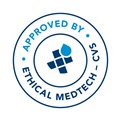Swati Agarwal
PGIMER & Dr. Ram Mnaohar Lohia Hospital
India
Title: To evaluate the effect of hyperbaric oxygen therapy on the hearing outcome in patients with sudden sensorineural hearing loss
Biography
Biography: Swati Agarwal
Abstract
Background: Sudden SNHL is a common otologic emergency, presenting mostly as an abrupt onset unilateral deafness. By definition, the etiology of sudden SNHL is unknown. Because of the multifactorial etiopathology, a number of different regimens have been used as therapy, Hyperbaric Oxygen Therapy being a novel one. Objectives: To ascertain whether the addition of HBOT to the conventional medical treatment improves the hearing outcome in patients with Sudden Sensorineural Hearing loss, to assess the impact of patient-related and audio vestibular parameters on the prognosis of sudden hearing loss and to document any adverse effects of HBOT. Methods: Forty patients with Sudden SNHL, 18-60 years were enrolled in this randomized controlled study. Twenty patients (Group A) received steroids, plasma expander dextran, gingko biloba extract, nicotinic acid, beta histine and antiviral acyclovir. A second group (Group B) of 20 patients received the same with the addition of 10 sessions of HBOT. Audiological assessments were performed with pure tone audiometry on day 5, 10 and at the end of each month for next 3 months. The following parameters were noted: Demographics (age, gender); presence of tinnitus; vestibular symptoms; time elapsed between onset of hearing loss and initiation of treatment; severity of hearing loss at presentation. Hearing outcomes were evaluated by four indices: Cure rate, marked recovery rate, recovery rate and hearing gain. Results: Mean hearing gain was 31.5±20.0 dB in Group B, which was significantly higher than that in Group A, 16.8±17.5 dB (p=0.018). The marked recovery rate was significantly higher in Group B than in Group A (50% vs. 20%; p=0.047). The patients who were treated within the first seven days of onset of hearing loss showed significantly higher hearing gains and better marked recovery rates. The cure rate was significantly higher in patients without vertigo than in those with vertigo (19% vs. 0%; p=0.045). 20% of the patients suffered from adverse effects of HBOT, the most common of which was otitis media. No other complications were reported. Conclusions: The addition of HBOT to the conventional treatment significantly improves the outcome of sudden deafness and its use should be encouraged as an adjunctive therapy along with conventional medical treatment. Also, age, gender, tinnitus and severity of hearing loss were not found to affect the outcome of sudden hearing loss. However, the following were found to be poor prognostic factors: The presence of vertigo and initiation of treatment more than seven days after onset of deafness. HBOT was found to be a relatively benign intervention.

